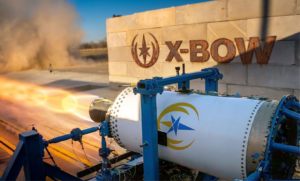The White House on June 7 objected to a provision in the Senate Armed Services Committee (SASC)-approved fiscal year 2016 defense authorization bill that would require a study of the cost and benefits of allowing the use of excess ICBM motors in commercial space launch.The White House, in its statement of administration policy (SAP), said President Barack Obama’s advisers would recommend he veto the bill for a number of reasons. Among these, buried at the bottom of its 21-page statement, the White…
Recommended
Trending
Congress Updates
Amid Questions On Weapons Stockpiles, Caine Says U.S. Has ‘Sufficient’ Munitions For Iran Operation
Pentagon leaders on Wednesday sought to quell concerns over the rate at which the U.S. is employing critical munitions in its military strike campaign against Iran, with lawmakers also pressing […]
SASC Leaders Criticize Trump’s Defense Strategy, Press Colby On Policy Shifts
Senate Armed Services Committee (SASC) leadership on Tuesday criticized the Trump administration’s new National Defense Strategy (NDS) and pressed the Pentagon’s top policy official to explain the document’s priorities. SASC […]
Wicker Wants Legislation On DoD’s Equity Investments In Minerals Supply Chain
Legislation regarding equity investments by the Defense Department in critical mineral supply chains is needed to strengthen the larger defense industrial base and demonstrate to the “free market” that the […]
“Not Sure How They Get To Where They Wanna Be,” Calvert Says of $1.5 Trillion Defense Topline Proposal
As the federal government enters a third week of tardiness in a fiscal 2027 budget release, a big question is how the Pentagon will be able to spend $500 billion […]
Job Feed
-
Senior/Principal R&D Systems Engineer
Advanced Space Systems, Onsite - Sandia National Laboratories - Albuquerque, NM -
Cleared Senior/Principal R&D Systems Engineer
W87-0/Sentinel Integration, Onsite - Sandia National Laboratories - Livermore, CA -
Early Career R&D Cybersecurity Researcher, Onsite
Sandia National Laboratories - Livermore, CA -
Early Career R&D AI Researcher, Onsite
Sandia National Laboratories - Livermore, CA

 By
By 









